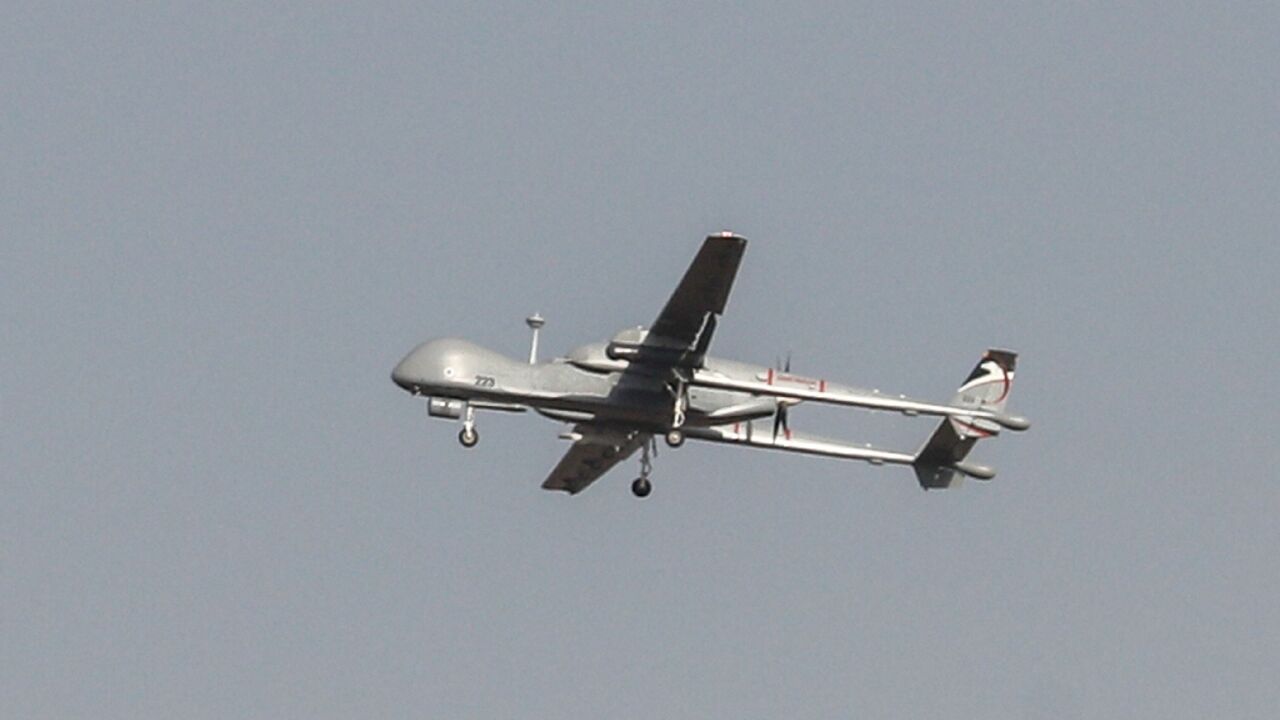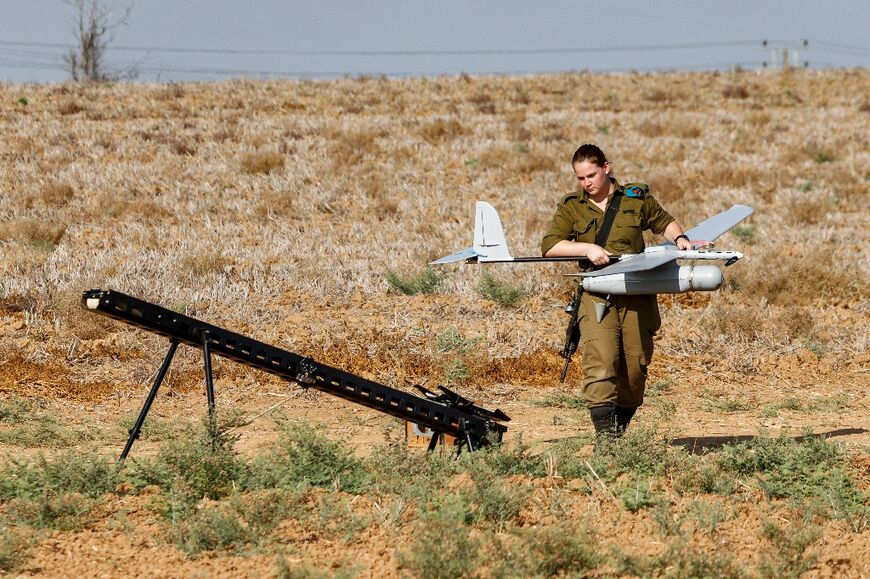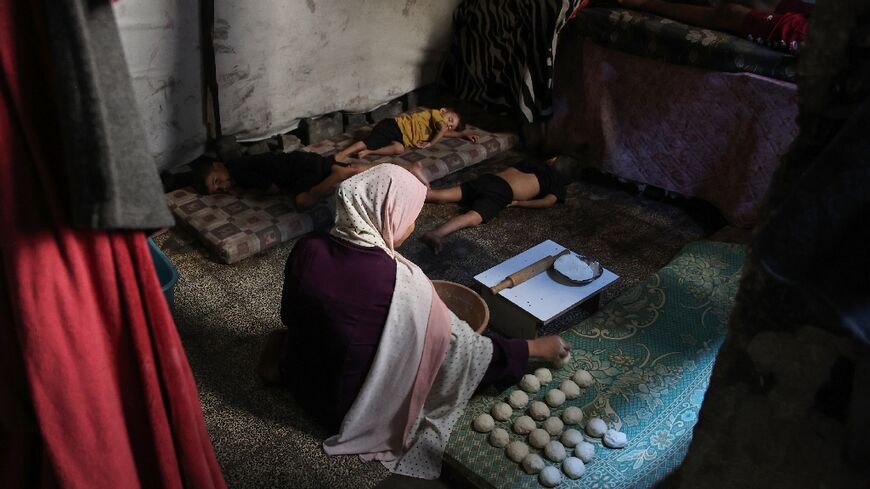'Worry and fear': Incessant Israeli drones heighten Gaza anxiety

Gaza teenager Bissam says she has trouble sleeping and concentrating as the buzzing sound of Israeli military drones above the crowded Palestinian enclave drives her to distraction.
When she is at home in the cramped family apartment, the 18-year-old said she feels that "the drone is constantly with me in my bedroom -- worry and fear don't leave our homes.
"Sometimes I have to put the pillow on my head so I don't hear its buzz," she said, adding that the drone noise gives her headaches.
Unmanned surveillance aircraft have become an integral part of Israel's 15-year-old blockade of the impoverished enclave, and 2.3 million Palestinians endure their incessant hum.
Bissam, whose family requested their surname be withheld for security reasons, said that together with the street noise, the drones create an unbearable cacophony.
"At night I try to review the lessons for my exams, but I can't read because of this annoying racket," she said from the cramped Gaza City apartment she shares with her parents and five siblings.
Each month, Israel uses drones above Gaza for 4,000 flying hours -- the equivalent of deploying five of the unmanned aircraft permanently in the sky -- the military told AFP.
The drones "collect intelligence data 24 hours a day", said Omri Dror, a commander from Israel's Palmachim airbase where the aircraft take off.
- 'I'm scared like my children' -
During an 11-day war in May 2021 between Israel and Gaza militants, the Israeli army deployed 25 drones for 6,000 flight hours to constantly monitor the territory, according to army data.
It intensified that presence during a three-day conflict in August this year, using 30 drones for a total of more than 2,000 flight hours.
Bissam's mother Rim said she struggles to calm her children when the drones fly overhead, fearing an Israeli air strike could follow even if there is no active conflict.
"I'm basically scared like them. How can I reassure my children?" the 42-year-old said.
The din above the family home is particularly acute due to its proximity to a base of the Al-Qassam Brigades -- the armed wing of Gaza rulers Hamas -- but drones are also heard above busy shopping streets.
"The kids sleep intermittently. We wake up, we sleep, then we wake up" again, Rim said.
- 'Always the drone is there' -
In Gaza's southern city of Khan Yunis, psychiatrist Iman Hijjo treats Palestinians whose conflict trauma is triggered by the sound of Israeli drones.
Israel and Hamas have fought four wars over the past 15 years.
"When an insect moves around you, you can hit it, but not the drone," Hijjo said, adding that the situation leads to a "sense of powerlessness".
"The drones keep Gaza's skies closed, without a horizon or hope," she said.
Children suffer "fear and anxiety" as a direct result of the drones, Hijjo said, lamenting a lack of scientific research to determine longer-term impacts.
"Children need to feel safe in order to develop," fellow psychiatrist Sami Oweida said. "But with the presence of drones in the sky, these feelings cannot flourish."
The unmanned aircraft are so omnipresent that artists have even referenced them in their works.
The "sound of drones flying above my family and friends stops the games, the chatting and the laughter", Palestinian poet Mosab Abu Toha wrote in his recent English-language collection "Things You May Find Hidden in My Ear".
He told AFP that "the buzzing of the drones and the intermittent raids of the F16 (warplanes) have become an integral part of our lives".
"I write about the sky, the sea, the clouds, the setting sun, my children, my neighbours," he added. "But always, the drone is there. It fails to leave us."








